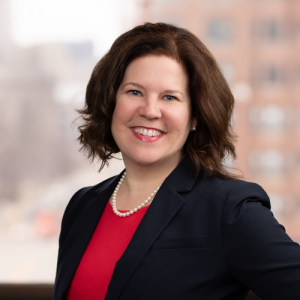Recently, the D.C. District Court ruled that HHS must include certain waiver programs in its Medicare disproportionate share calculations. This is a significant ruling because many states have experimented with different ways to provide health care to low-income populations. As a result, hospitals serving these populations may be entitled to increased payments.[1]
Background
Under § 1115(a) of the Social Security Act, some statutory requirements of Medicaid may be waived for state demonstration projects that will help promote the objectives of Medicaid. Such projects are more commonly known as “§ 1115 waiver programs.” These programs enable more individuals (§ 1115 patients) to receive Medicaid benefits without satisfying all statutory Medicaid requirements.
Medicare’s Disproportionate Share Hospital (“DSH”) payments are add-on payments for hospitals that treat a disproportionate number of low-income patients. These payments help hospitals continue to serve impoverished communities. The DSH payment is the sum of two fractions: the Medicare Fraction and the Medicaid Fraction. In 2003, the secretary promulgated a rule stating that § 1115 patient populations could be included in the Medicaid Fraction.
The Medicare Administrative Contractors (“MACs”) and the Provider Reimbursement Review Board (“PRRB”) have not permitted all § 1115 Waiver programs to be counted in a provider’s DSH Medicaid Fraction. The Bethesda plaintiffs are a group of Florida hospitals that challenged the MAC’s exclusion of days in their Medicaid Fractions that are attributable to Florida’s § 1115 Waiver program featuring the Low Income Pool (“LIP”). Under this LIP program, Medicaid reimbursement funds were available for services provided to “Medicaid, underinsured and uninsured patients” (§ 1115 patients) through a specific, auditable process, but the federal share of the LIP allotment was capped at $1 billion.
The Florida hospitals appealed the MAC’s denial to the PRRB. The PRRB ruled against the hospitals after finding the waiver terms were not specific enough and because the § 1115 LIP Waiver compensated hospitals for services provided to an unspecified population that conflicted with CMS’s interpretation that payments must be made on behalf of “specific patients.” The hospitals appealed to federal district court.
Analysis
The court found that the plain language of CMS’s regulation at 42 C.F.R. § 412.106(b)(4), which defines the Medicaid Fraction of Medicare DSH, focuses solely on a patient’s eligibility for a § 1115 Waiver program, not the specifics of the program itself. In finding for the hospitals, the court ruled that the regulation clearly and unambiguously states that a patient is “deemed eligible for Medicaid … if the patient is eligible for inpatient hospital services under an approved State Medicaid plan or under a waiver authorized under section 1115(a)(2).” Since the patients involved here received inpatient hospital services funded by the § 1115 LIP Waiver, the court found that was enough to determine the patients are deemed eligible for Medicaid and those days should be included in the Medicaid Fraction of the provider’s DSH calculation.
Practical Takeaways
- If CMS has approved a § 1115 Waiver program, the associated inpatient days can be counted in the hospital’s Medicare DSH reimbursement.
- Hospitals will still need to document properly the inpatient days associated with the § 1115 Waiver programs adopted in their states.
- Hospitals who have § 1115 Waiver days disallowed should consider challenging such denials by appealing from your Notice of Program Reimbursement within 180 days.
If you have questions regarding the impact of these developments on your DSH reimbursement, please contact:
- Maureen O’Brien Griffin at (317) 977-1429 or mgriffin@wp.hallrender.com;
- Liz Elias at (317) 977-1468 or eelias@wp.hallrender.com;
- Dwayne Barrs, Jr. at (214) 615-2008 or dbarrs@wp.hallrender.com;
- Lauren Rodriguez at (317) 977-1453 or lrodriguez@wp.hallrender.com or
- Your regular Hall Render attorney.
More information on Hall Render’s Reimbursement & Payment Practices services can be found here.


